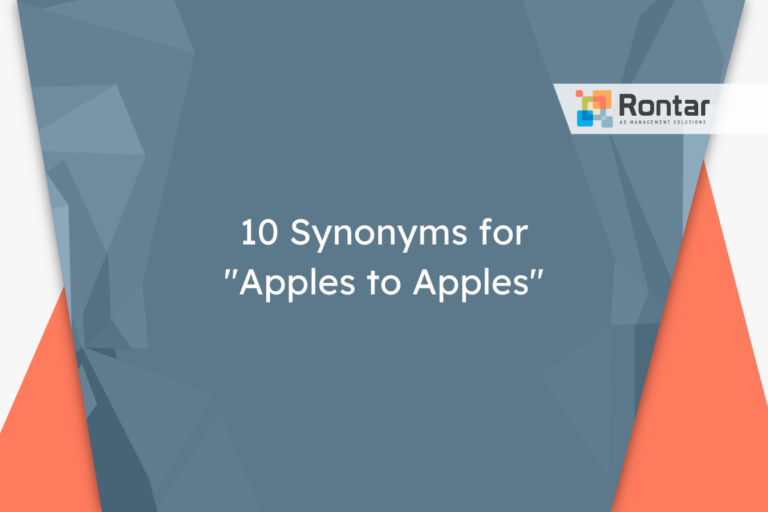10 Synonyms for “Thank You for Your Understanding” in an Email

In professional emails, it’s important to express gratitude effectively and appropriately. While “thank you for your understanding” is a common phrase, there are many other ways to convey the same sentiment.
This article explores 10 alternatives to this phrase, providing examples and contexts where each might be better suited. Whether you’re aiming for a more informal tone or looking to add variety to your emails, these synonyms can help you communicate more effectively.
Is It Professional to Say “Thank You for Your Understanding”?
The phrase “thank you for your understanding” is professional, formal, and polite. It expresses gratitude towards someone else’s patience or comprehension of a situation. This phrase is commonly used in professional settings where you might need a bit of leniency or time from someone else. Situations like a delayed response, a request for an extension on a deadline, or an apology for any inconvenience caused are appropriate times to use this phrase.
Here’s an example of how you might use it in an email:
Dear Melissa, I hope this message finds you well. Due to unforeseen circumstances, the report you requested will be submitted by the end of next week, instead of this Friday as initially planned. I appreciate your flexibility and thank you for your understanding. Please let me know if there's any additional information you require in the meantime. Warm regards, Alex Rivera
Here are some pros and cons of using this phrase:
Pros:
- It shows empathy and appreciation towards the recipient’s situation.
- Enhances the professionalism and politeness of your communication.
- Helps maintain a positive relationship with the email recipient.
Cons:
- It may be overused and come across as insincere in certain contexts.
- Could be perceived as too formal or distant in more casual or familiar relationships.
In some cases, someone might want to use an alternative phrase, especially if they feel “thank you for your understanding” doesn’t quite fit the tone or level of formality they’re aiming for in their message. Alternatives might be more casual or convey the message in a slightly different way, allowing for a bit more personality or specificity. Whether to stick with the traditional phrase or opt for a synonym depends on the sender’s relationship with the recipient, the specific situation, and the desired tone of the email. Using synonyms or alternatives can also prevent the expression from becoming stale or overlooked due to overuse.
10 Other Ways to Say “Thank You for Your Understanding” in an Email
Here are 10 common alternatives to the phrase “thank you for your understanding” that can be used in emails:
- I appreciate your patience.
- Thanks for being so flexible.
- Your support means a lot.
- Grateful for your compassion.
- I value your time and understanding.
- Thanks for accommodating the changes.
- Your understanding is much appreciated.
- I owe you one for your understanding.
- Thankful for your kind comprehension.
- Your empathy has not gone unnoticed.
1. I appreciate your patience.
This alternative is both polite and professional, and it emphasizes gratitude directly for the recipient’s patience. It is similar in sentiment to “thank you for your understanding” but focuses more specifically on the aspect of time. This can make it feel a tad more personal and direct.
This phrase is particularly well-suited when an email recipient has had to wait longer than expected for a reply or a resolution. It directly acknowledges the waiting period and expresses gratitude for their patience during that time.
Here’s an example email using this phrase:
Dear Marcus, We've received your request for the updated project proposal. We're in the final stages of review and will have it ready for you by Wednesday. I appreciate your patience as we ensure everything is in perfect order. Best, Emily
2. Thanks for being so flexible.
This informal synonym conveys gratitude for the recipient’s adaptability or willingness to accommodate changes. It feels less formal than “thank you for your understanding” but retains a polite tone, making it a perfect alternative for less formal interactions or when you know the recipient well.
Use this phrase when changes or adjustments in plans or expectations have occurred, and the recipient has been accommodating. It specifically highlights their flexibility, making it an excellent choice for acknowledging adaptability.
Here is a sample message:
Hi Chloe, Just a quick update: the meeting tomorrow has been moved to 3 PM instead of the morning slot. Thanks for being so flexible with these shifting schedules. Cheers, Liam
3. Your support means a lot.
This alternative is informal and touches more on the emotional support or backing the sender has received from the recipient. It’s more personal than “thank you for your understanding” and is best used in situations where emotional or significant support has been given, not just understanding.
This phrase is better suited in contexts where the recipient has offered support through challenging times or projects. It doesn’t just thank them for their understanding but also acknowledges the role their support has played, making it more heartfelt.
An example email could look like this:
Dear Team, As we wrap up this challenging project, I want to take a moment to express how much your hard work has contributed to our success. Your support means a lot to me and the company. Warm regards, Jordan
4. Grateful for your compassion.
This phrase is both formal and polite, and it shifts the focus to the recipient’s compassion or empathy. It is similar to “thank you for your understanding” but adds a layer of emotional depth, acknowledging not just understanding but also the kindness behind it.
It is particularly effective in situations where the recipient has shown empathy or kindness during difficult situations, such as personal losses or professional setbacks. It’s a way to express gratitude for emotional support and understanding.
Sample use in an email:
Dear Samantha, During the recent loss of my family member, your messages of support have been a beacon of hope. Grateful for your compassion during this difficult time. Sincerely, Kevin
5. I value your time and understanding.
This alternative is both professional and polite. It acknowledges not just the understanding but also the time the recipient has potentially invested or sacrificed. This makes the phrase slightly more formal and comprehensive.
This is especially apt when the matter discussed in the email has taken up considerable time or attention from the recipient. It not only thanks them for understanding the situation but also for the time they’ve dedicated, making it suitable for business contexts.
Example use:
Dear Richard, We have concluded our review of your application and would like to discuss the next steps. I value your time and understanding as we navigate this process together. Best regards, Anita
6. Thanks for accommodating the changes.
This alternative is more specific than the original phrase and directly acknowledges the recipient’s flexibility. It’s less formal, making it ideal for messages where you wish to convey appreciation for someone’s adaptability or willingness to adjust. This option is particularly useful in scenarios where changes were requested or necessary, and the recipient’s cooperation was valuable.
For situations requiring acknowledgment of someone’s effort to adapt or when you want to express gratitude in a more personal and direct manner, this phrase shines. It strikes the right balance between professionalism and warmth, making it suitable for both business and personal emails where changes have been a focal point.
Here’s a sample email using this alternative:
Dear Samantha, I wanted to reach out personally to express my gratitude for your flexibility during our recent project overhaul. Thanks for accommodating the changes. Your willingness to adapt has been crucial to keeping everything on track. Best regards, Michael
7. Your understanding is much appreciated.
This phrase is slightly more formal than “Thank you for your understanding” and places emphasis on the recipient’s empathy or patience. It’s an excellent choice for professional settings where you wish to acknowledge the other person’s understanding without being overly casual. This alternative is versatile and can be used in a variety of emails, whether they are to colleagues, clients, or superiors.
When you need to express gratitude in a way that feels genuine yet maintains a professional tone, this phrase is ideal. It’s especially suited for messages where you want to recognize someone’s patience or comprehension regarding complex or sensitive matters.
Here’s an example of how to use this phrase in an email:
Dear Mr. Thompson, Thank you for your patience as we navigated the unexpected challenges last week. Your understanding is much appreciated. We are committed to ensuring a smooth process moving forward. Sincerely, Emily
8. I owe you one for your understanding.
This phrase is more informal and suggests a personal debt of gratitude. It conveys appreciation in a light-hearted manner, making it perfect for emails to colleagues or individuals with whom you have a friendly relationship. This alternative is best reserved for less formal interactions where there’s a sense of camaraderie or mutual support.
In scenarios where the relationship allows for a more casual expression of thanks, and you wish to convey gratitude with a touch of personal acknowledgment, this phrase is particularly effective. It adds a personal dimension to the message, indicating not just appreciation but also a willingness to reciprocate in the future.
For a message that includes this phrase, consider this sample:
Hi Alex, Just wanted to drop you a note for being so accommodating with the schedule changes. I owe you one for your understanding. Let's catch up over lunch soon! Cheers, Jordan
9. Thankful for your kind comprehension.
This alternative is formal and emphasizes the recipient’s empathetic grasp of the situation. It’s an excellent choice for messages that need to convey respect and gratitude, especially in professional settings. The use of “kind comprehension” highlights not just the understanding but also the graciousness with which it was offered.
When the situation calls for a high level of formality and you want to underline the recipient’s empathetic approach, this phrase is particularly suitable. It’s ideal for communications where the complexity of the subject matter required a significant degree of patience and insight from the recipient.
Here’s a sample email employing this phrase:
Dear Professor Allen, I appreciate the time you took to review my thesis proposal. Thankful for your kind comprehension of the adjustments needed. Your guidance is invaluable. Warm regards, Olivia
10. Your empathy has not gone unnoticed.
This alternative stands out for its focus on the recipient’s emotional intelligence and understanding. It’s a formal way of acknowledging someone’s ability to empathize with your situation. This phrase is suitable for professional emails where you want to recognize someone’s emotional support or understanding.
For instances where emotional understanding played a key role, and you aim to acknowledge this in a respectful and polite manner, this phrase is perfectly suited. It’s most effective in messages where the emotional aspects of a situation or interaction are at the forefront.
A sample email utilizing this phrase would look like this:
Dear Lillian, I want to express my sincere appreciation for your support during the recent project challenges. Your empathy has not gone unnoticed. Your ability to understand and work through the issues empathetically has been a great help. Kind regards, Thomas
Final Thoughts
Choosing the right way to say “thank you for your understanding” can change the tone of your email and improve your relationship with the recipient. By using the alternatives listed in this article, you can make your emails more engaging and sincere. So, next time you draft an email, consider using one of these alternatives to better match your message’s tone and context.






